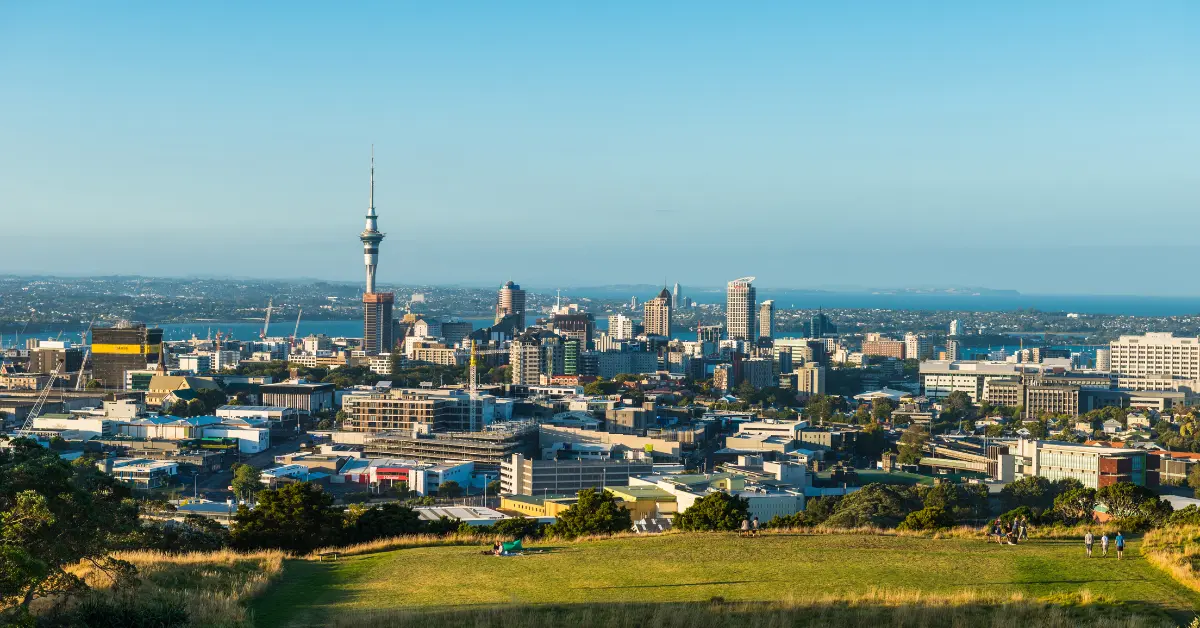Remitforex – The Money Transfer Expert
Remitforex – The Money Transfer Expert






Many industries need help finding workers due to a global labour shortage. Therefore, several developed economies have increased their annual migration numbers or eased visa regulations to help businesses recruit staff to fill needs caused by COVID-19-related border controls.
New Zealand can be a great option if you are a skilled worker looking for job opportunities, as it boasts a thriving economy with ample possibilities for professional employment. You can quickly secure a job with the proper knowledge, experience, and skills. Exciting news for skilled workers looking to migrate to New Zealand: the country plans to ease its migration rules to attract more experienced workers. Let’s discuss the changes in detail.
In a statement, Immigration Minister Michael Woods announced that New Zealand is opening up its yearly quota for highly-skilled migrants and streamlining the process for granting permanent residency. The move comes as wealthy nations compete to attract top global talent. Minister Woods explained that the changes eliminate a cap on skilled migrants and remove a previous limitation in the system that set a specific number of residence spots each year, which prevented qualified migrants from settling in New Zealand despite an apparent demand for their skills.
Starting in October, the New Zealand government plans to simplify its points-based system for selecting skilled migrants, speeding up the visa application process and providing migrant workers with more clarity regarding eligibility. Although New Zealand has no formal limit on the number of skilled resident visas issued annually, they manage the process within a planning range that limits the number of permanent residency permits issued. Michael Woods said that the government has heard from businesses giving confidence that skilled migrants and their families can acquire a residency in New Zealand will be a significant draw card for luring skilled workers.
New Zealand’s Skilled Migrant Category has been the primary visa category for residency based on skills and employment. In line with the Immigration Rebalance, three new priority skilled residence pathways have been introduced. These include the Skilled Migrant Category that recognizes individuals’ skills, the Green List residence pathways for eligible migrants in specified highly skilled, and the Highly Paid Residence Visa (migrants earning at least twice the median wage).
Before the closure of the borders, there was a surplus of individuals who met the criteria for the Skilled Migrant Category, resulting in extended wait times and ambiguity for immigrants. Additionally, many individuals with minimal training or experience applied for positions under the Skilled Migrants Category.
The proposed future settings are designed to:
Align with the Immigration Rebalance: The goal is to promote an economy with higher productivity and wages while simplifying employers’ recruitment process and hiring skilled immigrants.
Give more certainty to migrant workers and their families: Aim is to provide migrants with clear, fair, and transparent information to help them make informed decisions about their immigration options.
Improve processing times: To reduce wait times for migrants and eliminate long queues by streamlining processes wherever feasible.
Reduce immigration and labour market risks: The government can mitigate the risk of exploitation by imposing specific conditions on drivers where necessary. It will help address any identified risks.
One important suggestion is to implement a more straightforward points system that prioritizes granting residency to individuals with the necessary skills to fill medium- to long-term employment needs that may be difficult or time-consuming to fill using domestic labour, even with favourable circumstances. This points system establishes a clear skill requirement for residency but provides multiple options for individuals to showcase their level of expertise.
To be eligible, you must obtain at least 6 points made up from:
Choose the skill category that offers the most points based on your professional registration, qualifications or income. You will get in between 3 to 6 points.
One point per year of working in New Zealand in a skilled job ( up to a maximum of 3 points)
All applicants must possess a job or a job offer in New Zealand and receive at least a median wage to be eligible.
On November 9 2023, the Skilled Migrant Category will reopen with the current points system. It allows skilled migrants to apply for residence while new settings are being developed. Those who have already submitted an Expression of Interest can update their information or withdraw it and receive a refund. If you have submitted an Expression of Interest (EOI) but wish to cancel it, you can do so at any point. However, if your EOI has already been chosen, you will not be eligible for a refund. This is because your fee covered the costs associated with assessing your EOI. To initiate the withdrawal process, you must fill out and submit a Customer Refund Request Form.
Before November 9, existing and new Expressions of Interest must meet the current points threshold of 160 points. After November 9, the points threshold will increase to 180 points to align with proposed future settings and the goals of the Immigration Rebalance. Eligible migrants can also work in New Zealand on an Accredited Employer Work Visa and apply for residence when the new Skilled Migrant Category settings are finalized.
If you want to apply for the Skilled Migrant Category Resident Visa under the current points system, submit your Expression of Interest (EOI) by 23:59 on Tuesday, August 15, 2023. After this date, selections of EOI will no longer be accepted. A new points system will replace the current one on October 9, 2023.
To begin the selection process, they will carefully review your EOI to confirm that you have the necessary points based on your age, experience, employment, and qualifications. If you have accumulated enough points, you can apply for a Resident Visa through the Skilled Migrant Category. Visa and legal fees are costs to consider when moving abroad. Unimoni is an RBI-authorized Category II company which can help you in every step of the migration, from passport to air ticketing.
If you are invited to apply for a Skilled Migrant Category Resident Visa, you will have four months to submit your application online. It is important to have all necessary information and documents ready beforehand. Be sure to check the file size requirements on the form and ensure the files you upload are not too large.
Starting on January 18, 2023, selections for the Skilled Migrant Category Resident Visa will occur monthly on the third Wednesday of each month until August 16, 2023. Only EOIs with a minimum of 180 points will be selected. Beginning in October 2023, a new points system will be implemented for the Skilled Migrant Category Resident Visa.
Starting soon, individuals who cannot prove they are on a residency pathway will only be allowed to stay in New Zealand on an AEWV for a maximum of 5 years. To apply for another AEWV, they must spend 12 months outside the country. As of November 2023, the maximum duration of an AEWV will be increased from 3 years to 5 years, in line with the new 5-year maximum continuous stay rule for AEWV holders.
Get immigration payments moving faster through Unimoni!
Customs duties and taxes, travel costs, move-in costs, cell phone costs, parcel shipping costs, car rental, packing supplies, food, and things for your new home may need currency in NZD. Consider buying Unimoni’s travel card. When travelling abroad, a Forex card can be a convenient and secure option for carrying foreign currency and paying for expenses. Unlike cash or credit/debit cards, this card allows you to transfer money in your local currency. It automatically converts it into foreign currency at a fixed and competitive exchange rate. It’s a hassle-free way to manage your finances while travelling overseas.
For more details, reach us: https://remitforex.com/services/contact.html.




